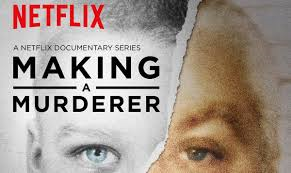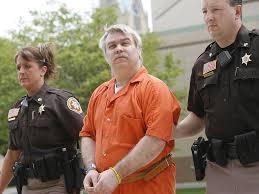
The producers of Netflix's controversial Steven Avery documentary series Making A Murderer fired back Sunday at critics who say their indictment of the criminal justice system is distorted and paints Avery in too favorable a light.
"This is history repeating itself," co-director Laura Ricciardi told TV writers in Pasadena. "The media is demonizing this man to prove his guilt."
Making a Murderer, which has caused a media storm in the month since its release, traces the story of Avery, a Wisconsin man who served 18 years for a 1985 rape, was exonerated by DNA evidence in 2003 and two years later was arrested for and convicted of murder.
He is now serving life on that second conviction. Ricciardi said Avery has asked the warden for permission to see their series and it was denied.
The documentary series, which Ricciardi and co-director Moira Demos spent close to a decade filming, suggests the justice system made numerous errors, some seemingly intentional, in both the cases against Avery.
They also say Avery himself wasn't their focus.
"We didn't set out to exonerate or convict anyone," said Ricciardi. "Our focus was on how the criminal justice system works."
Their conclusion was not reassuring, they say.
"It's clear the system has serious problems that need attention," said Demos. "The problem is writ large across our country."
To many viewers, Making A Murderer raised at least reasonable doubt about Avery's guilt. Online petitions began calling for a review of his case, which is currently under appeal.
This response in turn sparked a backlash, with former prosecutor Jeannine Pirro, HLN's Nancy Grace and other reporters charging the series hadn't told the full story.
Grace said Making a Murderer leaves out key evidence against Avery in the 2005 murder of Teresa Halbach. She also interviewed Avery's fiancé Jodi Stachowski, who says in the documentary that she believes he's innocent, but tells Grace she now thinks he's guilty,
Demos said Stachowski's comments in the documentary "are an accurate representation of what she said when we interviewed her, nine years ago."
Asked about another charge, that Making a Murderer ignored some of the evidence, Ricciardi said it was "impossible to present every bit of evidence," but that the overall representation was fair.
"We approached this the way journalists do," he told TV writers in Pasadena. "We talked to the people involved, we went to primary sources, we checked our facts."
She said that contrary to recent comments from some of the prosecutors in the case, they were all given "multiple opportunities" to talk about what happened.
Demos tackled one other criticism, that the documentary downplayed past accusations of domestic violence against Avery.
"How is any of that relevant," she asked, "to his right to a fair trial?"
While Demos stressed that "We don't see this as advocacy journalism. . . it's not taking sides," she said she understands why it sparked responses like a free-Avery movement.
"It's clear people were very affected," she said. "Maybe they saw something like that as a first step. But we're urging people to talk more deeply about how they can get involved.
"It's a story with conflicting narratives. We want people to embrace that ambiguity."
Making A Murderer included a note that there could be further episodes, depending on future developments.
Ricciardi said Sunday she and Demos had talked with Avery by phone over the last few weeks, taping the calls for potential use. At the moment, she said, nothing concrete is planned.


